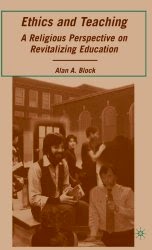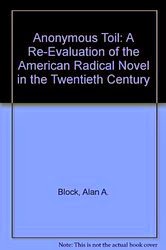
Let us see where we are at present. I think this is week four of the shut down and the imperative for social distancing. The global economy has ground to a halt though I know that it will finally rebound again, but its decline reminds me how fragile our comforts are. The restaurants, the bookstores, the shoe stores, the hair stylists and barber shops; the coffee houses, the health clubs, religious institutions; schools and universities, all, all have been shuttered.. Many educational organizations have turned to on-line delivery systems and I fear that what might be learned from these methodologies is how much money can now be saved and therefore, accumulated by eliminating the actual classrooms. The teaching profession will be decimated and though all children will experience deprivation, children with the greatest need with also suffer the greatest loss. Bookrooms will become obsolete, supplies of paper and writing utensils will disappear; on-line access will be available to only those with the available financial resources; laboratory experiences will be lost; and conversations will be negotiated through heavily mediated programs that will compromise spontaneity and trial and error talk. The losses are without number.The definitions of education will require change.
And more: restaurants now offer curb-side pick-up, and there is the suspicion that rather than open for customers when the pandemic ends they will continue serving only curbside take-out and another workplace and social setting will be lost. Bookstores also have begun to offer curbside pick-up, and the joyous experience of browsing and discovering a new book will cease to offer pleasure and surprise delight to the population. New and not best-selling authors will become invisible and unread.
The streets here have become eerily empty: Ford Parkway, where I live, a street that is usually traffic heavy is now devoid of cars and trucks. I should not touch the walk button without gloves or with a disinfectant wipe, but then there is no cause to wait for the light to change: there is no vehicle coming in either direction. Pedestrians are few in number though children on their bicycles or in small groups stand I think too close together. But isn’t that always the way with children . . . mostly they remain oblivious or unconcerned of mortality. The retailers, except for the pharmacy, the supermarkets and liquor store (thank goodness) are closed, and the latter also offers curb-side pick-up. In the irregular and carefully choreographed trips to the supermarkets, my fellow shoppers and I are only adults. Of course, I shop during the first hour reserved for older folks, but I suspect that few would carry their young children into such an environment even in more convenient daylight hours. We move about in the aisles cautiously, wary of each other. About half of us are masked but our eyes flash about in suspicion. “Is she sick? Does he have it?” “Keep a safe distance of six feet! We recently viewed the 1978 version of
Invasion of the body Snatchers.” That is our reality now: people may look normal but they may not be so.
What our condition now seems pointedly described in Camus’s novel
The Plague.” There, the narrator describes the experience of forced isolation—what we have described as self-quarantine and self-sheltering—as exile. Of the many deprivations the pandemic has caused, exile seems to be the most serious. The townspeople came to know “the incorrigible sorry of all prisoners in exile, which is to live in company with a memory that serves no purpose.” Memory holds us to a past that is now gone, and memory should anticipate for us a future. But our present situation means that the future can’t have much if anything to do with the past. As exiles, then, we are condemned to the present that now (an irony term itself) exists wholly out of time. I think the situation is worse than it was for Tantalus: we cannot be even tempted . . . we feel hopeless.
But maybe this need not be ultimately so. Ironically there might be something interesting to observe here. In the chapter “Where I Lived and What I Lived For” Thoreau writes, “A man is rich in proportion to the number of things which he can afford to let alone.” During this time of shuttered doors and social distancing, we are learning what may be essential and what is no longer for our lives. I must consider what I really do need and of what can I let go? Thoreau also remarked that “The cost of a thing is the amount of what I will call life which is required to be exchanged for it, immediately or in the long run.” For the sake of our lives in these times we have forgone many things, decided that our lives should not be exchanged for them, and again, perhaps, have learned a different life. When the epidemic ends, we should be different folks. I think we might be learning the cost of things right now.
Through my mind I have been listening to lines from Paul Siebel’s song, “Then Came the Children.” He sings, “We can teach them nothing nothing/ but survival in a desert bare,/ But they can teach us how to love,/ And live and tie bright ribbons in our hair.” I think that we should learn to do those things; we have need of bright ribbons, but today I miss the children.













